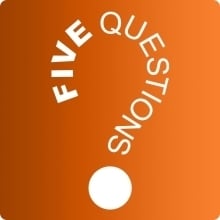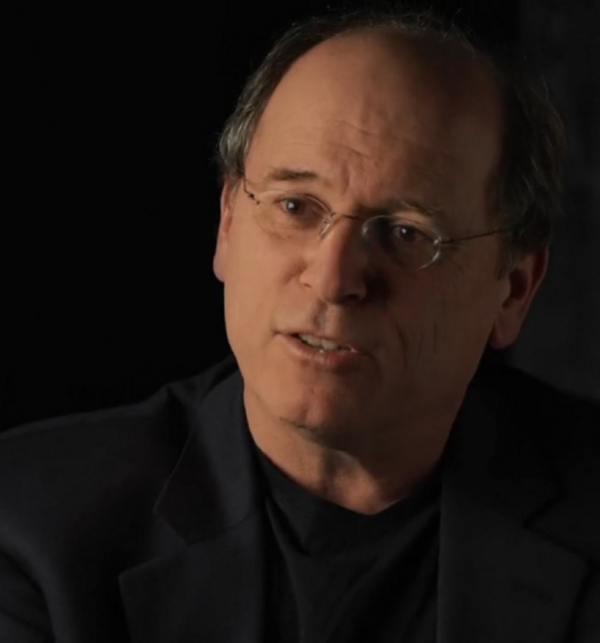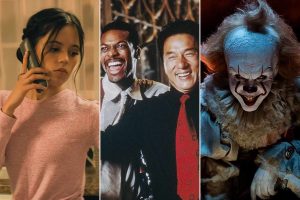In 1961, shortly after the University of Georgia admitted its first two Black students, a math instructor asked a group of white students to write down their feelings about the integration—and the segregationist riots that followed. Decades later, Robert Cohen, a professor of history and social studies at New York University and a senior fellow at the University of California National Center for Free Speech and Civic Engagement, became the first historian to analyze those writings in an attempt to better understand the racial ideas of university students in the South at the time.

He found that many students’ views were rooted in their lack of knowledge about America’s history of slavery and racism; they received no education on those topics in Georgia’s K-12 schools, nor at UGA itself. His findings, featured in his book Confronting Jim Crow: Race, Memory, and the University of Georgia in the Twentieth Century (University of North Carolina Press, 2024), are especially relevant today, as conservative politicians and lobbyists push for restrictions on what they often refer to as diversity, equity and inclusion–related curricula in higher education. Colleges in Florida, for example, recently struck from their general education requirement options hundreds of classes related to race, gender and sexuality. And the University of North Carolina system, in response to President Donald Trump’s anti-DEI executive orders, announced that its institutions will no longer require students to take diversity courses to graduate, nor will they be requirements of any individual majors.
Inside Higher Ed asked Cohen, who is now working on a book about Martin Luther King Jr.’s commentary on the “triple evils” of society—racism, militarism and extreme materialism—five questions about what the Jim Crow era and the Civil Rights movement can teach us about the current crusade against DEI in higher education. His answers, sent via email and lightly edited for clarity and style, are below.
1. Right now, some students, alumni and faculty are upset at their universities for staying quiet in the face of the Trump administration’s attacks on DEI and higher ed broadly. Where does this tactic and the concept of institutional neutrality fit into the history of how universities have responded to social inequality?

Cohen teaches history and social studies at New York University.
The whole concept of “institutional neutrality” is problematic. Currently this argument is made to stop campus administrators, especially college and university presidents, from taking positions on controversial issues. But even a college president who avoids commenting on the Gaza war may still be a member of his campus’s Board of Trustees that invests in companies that supply the Israeli military. No matter how you view those investments, they certainly are not neutral. So I find this singular focus on administration statements quite misleading. The idea of institutional neutrality becomes simply a mask for political cowardice if it means not defending the university from the Trump administration’s attempts to defund your university and gag its dissenters. If you want to be neutral in the face of an authoritarian, antiscience, anti–free speech, anti-intellectual and xenophobic White House that is directly attacking the university, you have no business in a university leadership position. You are being paid to lead, and today that means defending your university, so do your job …
There has been a dismal history of such cowardice and “neutrality” at the university. In fact, this was the administration mindset that led UC Berkeley to bar political advocacy on campus—a ban designed to appease right wingers in the State Legislature and business community—that sparked the Free Speech Movement in 1964.
2. As part of the push against DEI in higher ed, Republicans have argued students shouldn’t be “forced” to learn about topics like race and gender, and some lawmakers have pushed to remove general education requirements centered on diversity. What do we know about the impacts of required diversity education?
First let me say that this push against teaching about racism (and gender) is made primarily by reactionaries who neither understand nor care about history and who seem to think we can escape our racist past if we pretend both that it never existed and has no relevance to 21st-century America. My recent book, Confronting Jim Crow, documents the dangers of this kind of ignorance, which was bred in an educational system that ignored racism and its harmful impact on American society.
In Georgia during the Jim Crow era, the state’s white majority learned nothing in school about the history of racial discrimination, so it was quite ignorant of how unjust its state’s political, court, economic and educational systems were in relegating African Americans to second-class citizenship. The schools did nothing to challenge white Georgian students’ harmful prejudices and absurd and demeaning stereotypes about Blacks that reinforced bigoted assumptions about Black inferiority. As late in the Jim Crow era as 1961, even the elite college students coming out of those schools, who attended the University of Georgia and whose essays I discuss in my book, often displayed the most bigoted assumptions about Black criminality, immorality and intelligence. Do we really want to return to that kind of miseducation?
It was with this kind of racial miseducation in mind that Martin Luther King Jr. argued that there was a critically important “job in the educational realm: destroying the myths and half-truths that have constantly been disseminated about Negroes all over the country and which lead to many of these racist attitudes.” Such educational intervention would, King argued, play a pivotal role in “getting rid once and for all of the notion of white supremacy.” And if you think MLK’s words here—which came in March 1968, in the last interview of his life—are no longer relevant in 21st-century America, just ponder the recent rise of white nationalism as a political force in the U.S. and the fact that Trump could get re-elected president even after he had, in a presidential debate, aired the hideous racist slander about Black immigrants from Haiti stealing and eating pet dogs and cats.
On the impact on education, well, it seems obvious at the higher ed level that in my field, American history, there have now been generations of pathbreaking works in African American, women’s, Native American, Asian American, Chicano and LGBT+ history that have enriched our understanding of the American past. I’m old enough to remember and can personally attest that in high school before this history made its way below the college level, we learned very little about women’s history, and that means we came out of school ignorant about the historical experience of half the population. Even worse, my generation learned nothing at all in high school about what we would today call LGBTQ+ history, and as a result of this gay students were regarded as pariahs and mistreated as such.
3. A commonly cited reason over the last five years or so as to why it’s inappropriate to teach about structural racism is because it makes white students “feel bad for being white,” to quote Condoleezza Rice. More recently, I’ve heard some people argue that learning about inequality is irrelevant and a waste of money for, say, an engineering student. What is your response to these arguments against including lessons about race and inequality in higher ed curricula?
This is total nonsense. I have been teaching American history for more than 40 years and have never encountered a student who complained of feeling “bad for being white” after reading about the history of racism. And even if they did, so what? That would be a teachable moment when you can explore such feelings and relate them to the history of those in the American past, like white abolitionists who transformed such bad feelings about whiteness and slavery into antislavery activism. To act as if teachers should cower in fear when their teaching touches student emotions is a prescription for cowardly and ineffective teaching.
At the higher ed level, whether you are training to be an engineer or anything else, you are also a citizen who belongs to a diverse society, and your advanced education should prepare you for your role as a citizen, not merely offer you vocational training.
4. The Trump administration is moving toward shutting down the Department of Education, including, of course, the Office for Civil Rights. What are your thoughts on what the impact of those cuts will be?
These cuts reflect this administration’s hostility to public education. It is linked to the Trumpists’ obsessive devotion to right-wing ideology that leads them to loathe teachers and their unions as the liberal enemy, much as they despise professors as left-wing purveyors of “wokeness.” And so they see these educators, along with the low-income students the Department of Education aids, as targets for budget cuts to make room for the tax breaks Trump wants to fund for the wealthiest Americans. Robin Hood in reverse.
5. Moving forward, are there any lessons higher ed leaders today can take away from the civil rights movement when it comes to how to approach the Trump administration’s attacks on higher education?
Yes, there are some valuable lessons. First, we need to be more vocal, as MLK was (as seen in the quote above), in making the case that antiracist education is a positive good that can make our society more democratic and humane. The civil rights movement was also quite candid in calling out the racism of its foes. For example, in his “I Have a Dream” speech, MLK denounced Alabama’s “vicious racists,” including its governor, whose lips King said were “dripping with the words of interposition and nullification” in opposition to the Brown [v. Board of Education] decision. One sees little of such candor today, when discussing a president who has helped make DEI into a code word suggesting—as segregationists did in the Jim Crow era—that Blacks lacked competence for professional jobs. This failure to call Trump out for his racism has resulted in a kind of amnesia about the ugly, racist presidential campaign he ran—arguably the most racist in American history. All this has just empowered Trump and his administration to assault diversity in education without being called out for their implicit racism.
It is also important for the American people to recognize the dishonesty of the claim President Trump made in his inaugural address about his dedication to realizing MLK’s dream. Trump’s attacks on DEI are totally at odds with Martin Luther King’s advocacy of federal programs that can assist in eliminating anti-Black racial discrimination. I have just finished writing a book on MLK’s social criticism, centering on his desire to free America of what he termed America’s “triple evils of racism, militarism and, extreme materialism,” all of which placed King and his compassionate vision for America on the opposite end of the political spectrum from Trump and his crude politics of white grievance, bellicose nationalism and billionaire dominance.








